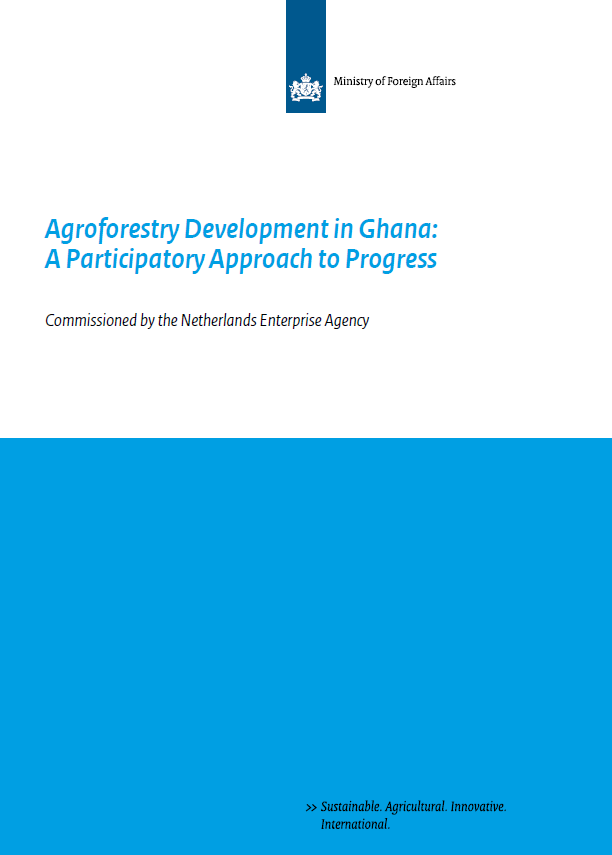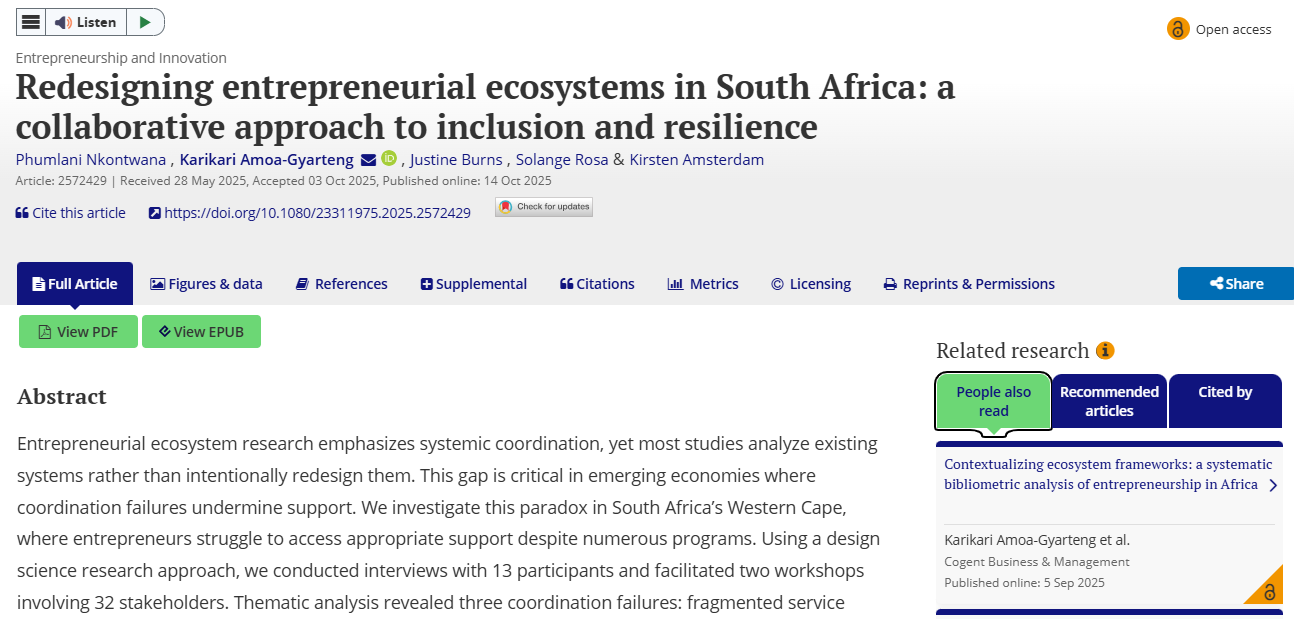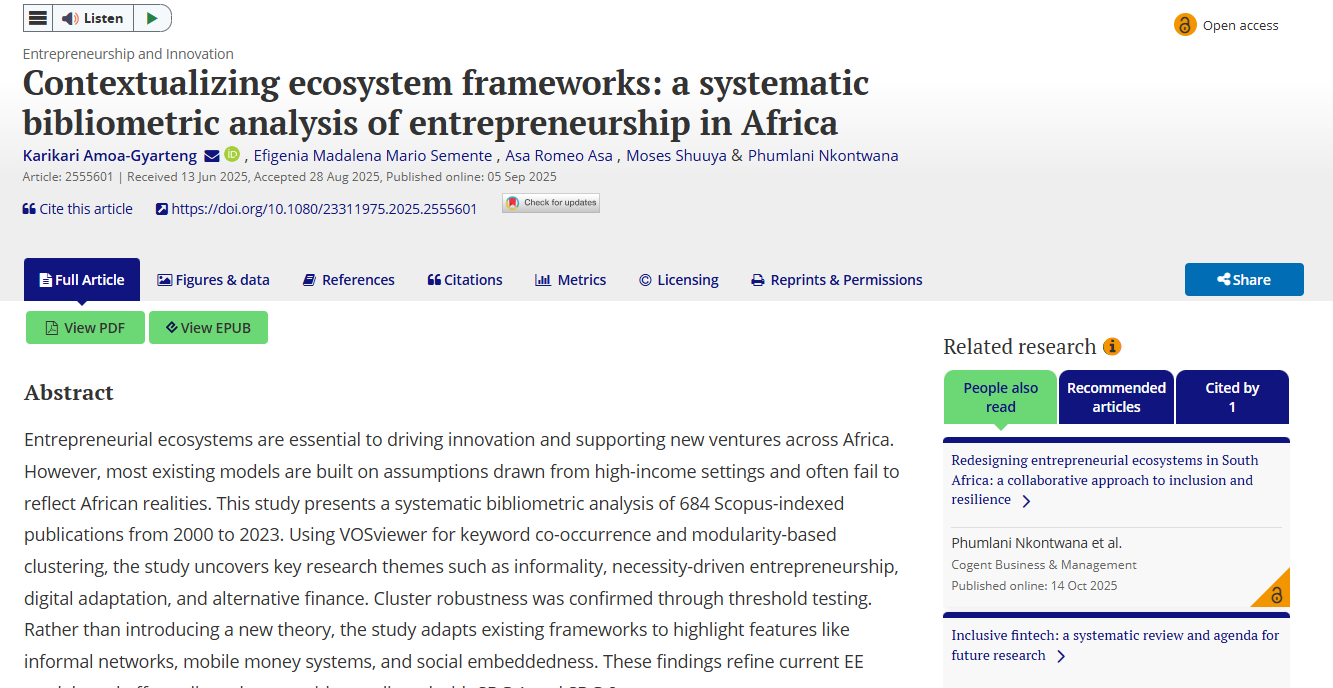- All Posts
- Publications

The Pan-African Policy Taskforce is a participant-led platform co-led by Smart Africa Alliance, i4Policy and The Tony Blair Institute and the Allan Gray Centre for Africa Entrepreneurship (AGCAE). The Taskforce was created from a collective need voiced by the African startup ecosystem to cultivate connections, enable the flow of information, and provide a venue where specific expertise, learnings and best practice can be shared.

The Benchmark report identifies 22 African SBAs and Startup Acts, benchmarks them and identifies 15 other instruments for comparison. Find out what the highlights are and learn from our recommendations.

A deliberate approach to centre African female entrepreneurs in policymaking and provide a candid snapshot of life as a female entrepreneur in Africa

Despite the popularity of the entrepreneurial ecosystem approach in science and policy, there is a scarcity of credible, accurate and comparable metrics of entrepreneurial ecosystems. This is a severe shortcoming for both scientific progress and successful policy. In this paper, we bridge the entrepreneurial ecosystem metrics gap.

Entrepreneurial ecosystems have become a prominent concept, yet in its current state, the concept itself represents a paradox. While it draws on a rich intellectual history and provides an opportunity to synthesize different strands of research, it is also under-theorized and the mechanisms that govern ecosystem evolution are not well understood.

There is a growing interest in ecosystems as an approach for understanding the context of entrepreneurship at the macro level of an organizational community. It consists of all the interdependent actors and factors that enable and constrain entrepreneurship within a particular territory. Although growing in popularity, the entrepreneurial ecosystem concept remains loosely defined and measured. This paper shows the value of taking a systems view of the context of entrepreneurship: understanding entrepreneurial economies from a systems perspective.

Why Africa’s ‘Big Four’ are not the ‘Best Four’. A few years ago, The Economist concluded that Africa has enterprising people but too few businesses. Africans are far more likely to be self-employed than people in richer parts of the world, but the continent does not produce enough productive and profitable small and medium-sized businesses. More small and medium-sized businesses would increase productivity, reduce poverty, create more and better jobs and address many other societal challenges. The key question is: How can the conditions for entrepreneurship, business creation and growth, be improved in Africa?

A case study of the ADDIS Decision Thinking methodology applied in Nigeria to support the co-creation of the Nigeria Startup Act. The case study illuminates several heuristics for innovative policy-making developed by i4Policy under the ICT58 Horizon 2020 grant for the African European Digital Innovation Bridge Network (AEDIB|NET).

By Erik Stam, Phumlani Nkontwana, Robert McDonald, Rafiki Murenzi, Kwabena A. Addo, Blaise Bayuo, Belinda Baah, Stefan Riezebos, Tim Gelissen This comprehensive study addresses the scarcity of data on productive entrepreneurship conditions across African nations. By sourcing data from diverse public and private entities, the authors construct the Africa Entrepreneurial Ecosystem Index (AEEI), offering a multidimensional analysis of national ecosystems. The paper serves as a critical resource for policymakers and stakeholders aiming to foster entrepreneurship-driven economic development in Africa.Read the Full Paper

This comprehensive report, commissioned by the Netherlands Enterprise Agency (RVO) and authored by i4Policy, explores the current state, challenges, and opportunities of agroforestry development in Ghana. It highlights agroforestry’s potential for sustainable development but notes its limitations, particularly a strong focus on cocoa-based systems despite the potential for other crops and ecological zones.

A study based on the Western Cape entrepreneurial ecosystem advances scholarship by demonstrating that these systems can be intentionally designed through collaborative processes, moving beyond the view that they are solely emergent phenomena.

This study analyzes the contextual frameworks of existing entrepreneurial ecosystem (EE) models through a systematic bibliometric analysis of 684 Scopus-indexed publications from 2000 to 2023. Using VOSviewer, the research uncovers key themes like informality, necessity-driven entrepreneurship, digital adaptation, and alternative finance, ultimately refining current EE models and offering policy guidance aligned with SDG 1 (No Poverty) and SDG 8 (Decent Work and Economic Growth).



